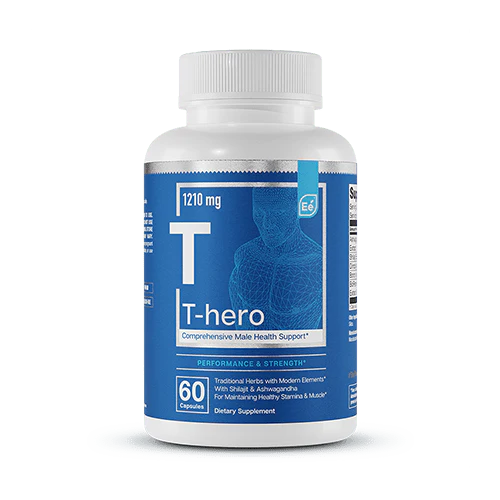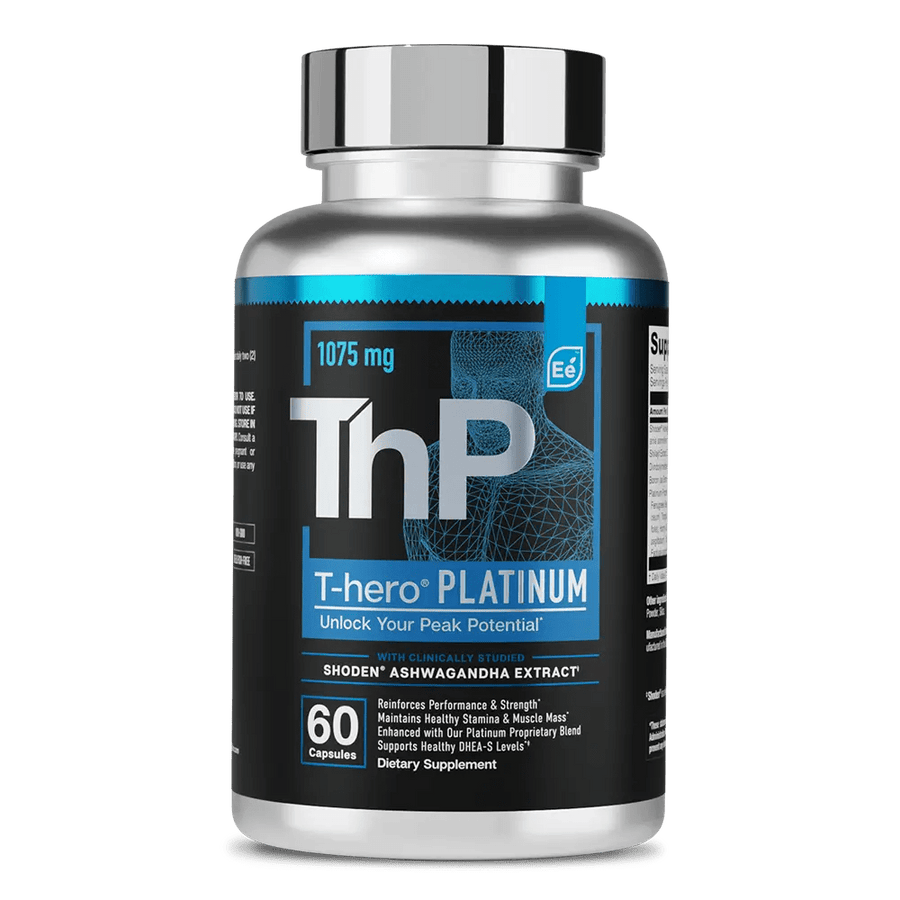How Sleep Affects Your Hormone Health
Sleep quality has profound effects on everything from heart health to your mental state, but there is another thing impacted by sleep that many people don’t think about — your hormones!
Hormones affect our lives in many ways and can play a big role in reaching your fitness goals. They influence weight, muscle development, energy, drive, moods, and so much more. We all know how crucial good sleep is for our health, but now is the time to prioritize it so you can stay balanced, feel good, and look good!
The Science of Sleep and Hormones
Sleep and hormones are deeply interconnected in several ways, and your sleep habits play a pivotal role in maintaining hormonal equilibrium.
If we aren’t getting enough sleep, our daily stress levels can go up, and that has a huge impact on hormonal health. Testosterone, cortisol, estrogen, and thyroid hormones can fluctuate depending on how well we manage stress.
And it’s not just about the amount of sleep we get; the quality and rhythm of our sleep cycles are crucial for keeping hormones in balance. Many hormones are released at certain times of the day or night and are triggered by the internal clock in our bodies: the circadian rhythm.
If we aren’t getting deep sleep at the same time each night, it could alter the timing and the amount of certain hormones that are released.
Key Hormones Affected by Sleep
♦ Cortisol
♦ Insulin
♦ Growth hormone
♦ Leptin
♦ Ghrelin
♦ Melatonin
♦ Testosterone
♦ Estrogen
♦ Progesterone
♦ Thyroid hormones

Consequences of Low Sleep Quality on Hormonal Health
If you are staying up late to binge-watch your favorite show, that could be affecting a lot more than just your energy levels the next day, so don’t skimp on those zzz’s!
♦ The first part of the deep sleep phase is when a large flush of growth hormone is released, and this is reliant on a consistent sleep schedule. This hormone is important for maintaining healthy muscle mass, bone density, and strengthening exercise capacity.
♦ The REM (rapid eye movement) phase of sleep is crucial for testosterone production in men and women, which influences libido, muscle mass, and mood.
♦ Lack of sleep can even make you hungry! Not getting enough sleep can alter levels of ghrelin, aka the hunger hormone, resulting in additional cravings.
♦ Too little sleep can alter the transmission of neurotransmitters such as serotonin and dopamine. These act as hormonal agents in the body and have a direct link to other hormones, especially testosterone and estrogen.
♦ Not getting enough sleep can ramp up the production of the stress hormone cortisol, which can contribute to weight gain and is related to a variety of health issues.
♦ Thyroid hormones are linked to the circadian rhythm, and sleep interruptions can affect levels of thyroid-stimulating hormone (TSH), thyroxine (T4), and triiodothyronine (T3), which are involved in metabolism, daily energy levels, and many functions throughout the body.
♦ Low sleep quality can make it more difficult to maintain regular menstrual cycles and healthy estrogen levels and can influence ovarian function.
♦ Irregular sleep patterns can change the way your body produces melatonin, leading to a mismatch in the timing of melatonin secretion and the body’s internal clock. This can make it more difficult to fall asleep and lead to waking up feeling unrested.
Benefits of Quality Sleep for Hormonal Balance
Adjusting your lifestyle to prioritize sleep length and quality will prime your endocrine system for producing and releasing the hormones essential to your health goals.
♦ Provides stress management support
♦ Supports testosterone health
♦ Supports a healthy metabolism
♦ Helps regulate appetite
♦ Benefits mental health
♦ Promotes reproductive health
♦ Helps keep estrogen in healthy ranges
♦ Benefits thyroid health

Tips for Improving Sleep for Hormone Health
Sleep Hygiene
Having a bedtime routine may sound boring, but it will help your body maintain regular hormonal secretions. Keep it simple and find what works best to help you wind down before calling it a night. Here are a few tips for getting a better night’s sleep:
♦ Go to bed and wake up close to the same time every day (even on the weekends!).
♦ Get a few minutes of sunlight exposure in the morning to help set your circadian rhythm.
♦ Reduce blue light exposure by changing the settings on your devices and/or wearing blue light-blocking glasses.
♦ Promote melatonin release by turning down the lights in the evenings after sunset.
♦ Take an evening walk.
♦ Have a cup of calming tea.
♦ Take relaxing supplements.
♦ Make your bedroom a calm environment with minimal clutter and low lighting options.
Lifestyle Adjustments
Adjusting your lifestyle can promote quality sleep and hormonal health and improve overall wellness and vitality. Even small changes can make a big difference!
♦ Eat a well-balanced diet with plenty of nutrients.
♦ Stay active. Get plenty of exercise, and plan activities that get you moving, such as hiking, walking your dog, playing volleyball, etc.
♦ Keep alcohol consumption to a minimum.
♦ Reduce sugar intake and eat plenty of fiber to encourage sleeping soundly throughout the night.
♦ Don’t eat a heavy meal right before bed.
♦ Reduce caffeine consumption, especially in the afternoon.

Mindfulness and Relaxation Techniques
Learning to meditate and calm your mind can ease you into sleep and help reduce daily stress levels as well. Some people find it more challenging than others to achieve a meditative state, but don’t let that stop you. Using more active approaches to mindfulness, such as movement-based meditation, might be the answer for people who struggle with traditional meditation methods.
There are plenty of options, so keep trying until you find what is right for you.
♦ Breathing exercises
♦ Progressive muscle relaxation
♦ Guided meditation (check out an app such as Calm or Headspace)
♦ Mindful walking
♦ Yoga
♦ Qi Gong
♦ Tai Chi
♦ Dancing
♦ Practice mindfulness while working out, riding your bike, or hiking.
Nutritional Supplementation
In addition to getting important nutrients from your diet, there are supplements and extracts that can help you get to sleep and stay asleep. Some calm the mind and body, and some will help regulate the sleep cycle over time. Many people can benefit from additional magnesium in the diet, which not only assists with attaining deep, restorative sleep, but it’s also essential for hormone health.
Supplements to consider for sleep support include:
♦ Magnesium
♦ L-theanine
♦ Ashwagandha
♦ Melatonin
♦ Vitamin D3
♦ Apigenin
♦ Omega-3 fatty acids
Another approach is to directly support your sleep and hormone health with a comprehensive supplement that offers support for both. Ashwagandha is an adaptogenic herb that benefits both sleep quality and hormonal health by helping mitigate the effects of the stress hormone cortisol, which can disrupt testosterone levels.

T-hero® Platinum is our newest and most advanced testosterone-support system to date, formulated with industry-leading Shoden® Ashwagandha† for maximum effectiveness and potency.
If your goals include maintaining healthy testosterone levels to help amplify peak physical performance, sexual health, and ongoing energy while also promoting sleep quality and reducing everyday stress, T-hero® Platinum is the supplement for you.
The Essential Element
Sleep helps us reset and recharge so we can recover from the day and ease the burdens of life. Supporting sleep cycles through daily habits and nutrition will also help keep your endocrine system in good health. Not only will you feel the effects of a good night’s sleep in other areas of your life, but your body will also be able to produce the hormones that keep you youthful, strong, and energetic.
Whether you are seeking to support testosterone levels, thyroid health, or overall wellness, prioritizing sleep provides a foundation for keeping your hormonal systems healthy.
†Shoden® is a registered trademark of Arjuna Natural Pvt. Ltd.





